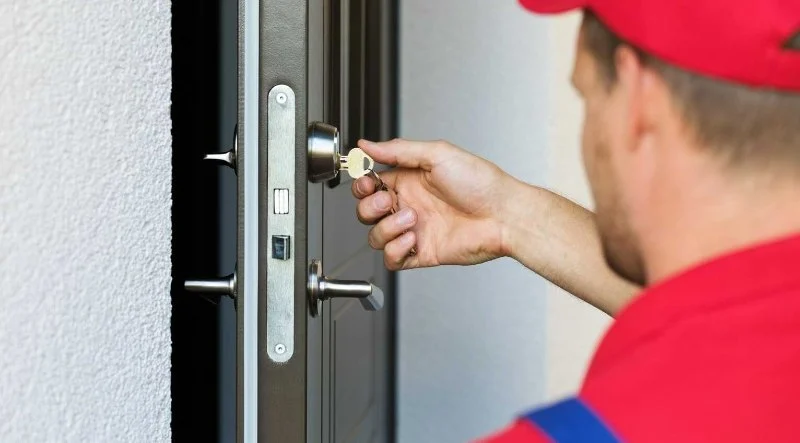
- Understanding Lock Fraud and Its Risks
- Common Lock Fraud Schemes to Watch Out For
- Steps to Protect Your Home from Lock Fraud
- How to Choose a Reliable Locksmith
Understanding Lock Fraud and Its Risks
Lock fraud is a growing concern for homeowners across the country. Fraudsters often use deceptive tactics to gain unauthorized access to your home, sometimes posing as professional locksmiths. Understanding what lock fraud is and how it works is the first step in safeguarding your home.
At its core, lock fraud involves individuals who exploit vulnerabilities in your home’s security system, usually through lock manipulation, duplication, or replacement of keys without the homeowner’s consent. These criminals might also target older locks that are easier to tamper with, leaving homeowners unaware of the potential risks until it’s too late.
The primary risk with lock fraud is that once the fraudsters have access to your home, they can steal valuable items, tamper with your security systems, or even commit other criminal acts. That's why it’s essential to remain vigilant and take proactive steps to protect yourself.
Common Lock Fraud Schemes to Watch Out For
There are several common types of lock fraud schemes that homeowners need to be aware of. Knowing how to recognize these scams can help you avoid falling victim to them:
1. Fake Locksmith Services
One of the most common forms of lock fraud is when criminals advertise themselves as locksmiths. They often appear legitimate by offering cheap rates or being available at short notice. However, once they gain access to your property, they may overcharge you for their services or perform unnecessary work.
Some fraudsters will also replace locks with low-quality products or damage existing security systems, all in an effort to increase their profits. This is why it’s important to research and verify any locksmith service before hiring them.
2. Key Duplication without Consent
Another scam involves locksmiths who secretly make duplicates of your keys during a legitimate service call. Once they have a copy of your key, they can return at a later time and gain access to your home. This is particularly concerning when the locksmith has been hired by someone you trust, such as a friend or neighbor.
3. Lock Bumping
Lock bumping is a method used to open traditional pin-tumbler locks without the use of a key. Fraudsters use a special tool called a bump key, which is designed to open almost any lock. If your locks aren’t up to modern standards, they may be vulnerable to this technique. It's essential to upgrade older locks to more secure models to protect your home from this form of intrusion.
Steps to Protect Your Home from Lock Fraud
Now that you understand the risks and common schemes associated with lock fraud, here are some essential steps you can take to protect your home:
1. Install High-Security Locks
One of the best ways to protect your home from lock fraud is by investing in high-security locks. These locks are designed to be resistant to tampering, lock bumping, and key duplication. They often feature advanced technology, such as key control systems, which limit who can make copies of your keys.
When choosing high-security locks, consider options that have been tested and certified by recognized security standards, such as ANSI Grade 1 or UL 437. These locks offer the highest level of protection for your home.
2. Verify Your Locksmith
Before hiring any locksmith, always verify their credentials. A reputable locksmith should be licensed, insured, and bonded. You can check their certifications with local authorities or professional locksmith organizations like the Associated Locksmiths of America (ALOA).
It’s also a good idea to read online reviews or ask for recommendations from friends and family to ensure that the locksmith has a solid reputation for honesty and reliability.
3. Secure All Entry Points
While locks are an important part of securing your home, it’s equally important to make sure all entry points are secure. Install quality deadbolts on doors, reinforce windows with security bars or locks, and consider adding a peephole or security camera at the entrance. The more secure your entry points are, the less likely a criminal will attempt to break in.
4. Regularly Rekey or Replace Your Locks
If you’ve recently moved into a new home, it’s a good idea to rekey the locks or have them replaced altogether. This ensures that no one else has access to your home’s keys. Even if you haven’t changed residences, it’s a good practice to have your locks rekeyed periodically, especially if you’ve misplaced a key or suspect it may have been duplicated without your consent.
How to Choose a Reliable Locksmith
Choosing the right locksmith is crucial to avoid falling victim to lock fraud. Here are some tips to help you choose a trustworthy professional:
1. Look for a Local Locksmith
Always choose a local locksmith who has a physical address and a reputable history within your community. Local locksmiths are more likely to provide reliable, honest service because they are familiar with the area and depend on word-of-mouth referrals.
2. Get Multiple Quotes
Before committing to a locksmith, it’s a good idea to get quotes from a few different service providers. A trustworthy locksmith will offer a fair and transparent estimate for the job. Be wary of locksmiths who give vague or unusually low estimates, as they may try to charge you hidden fees later.
3. Ask About Insurance and Warranties
Make sure the locksmith is insured, as this protects you in case of any damage to your property. Additionally, inquire about warranties on parts and labor to ensure that you’re covered if something goes wrong after the job is done.
Protecting your home from lock fraud doesn’t have to be complicated. By following these locksmith tips and staying vigilant, you can significantly reduce the risk of falling victim to scams and keep your home secure.



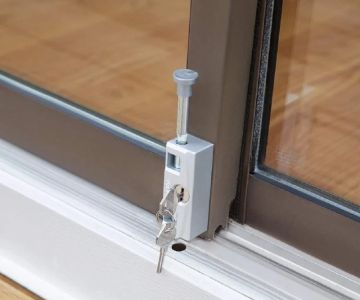
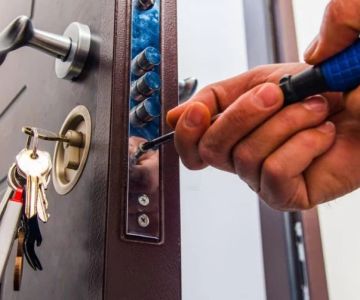
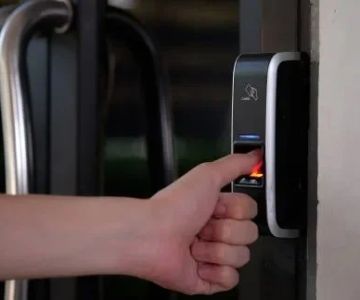
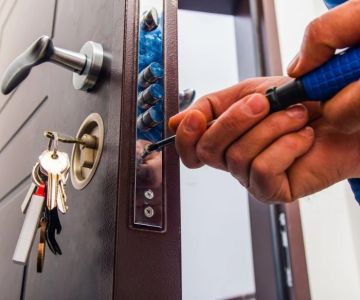
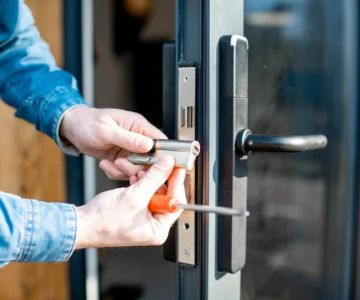

 KeyMe Locksmiths4.0 (176 reviews)
KeyMe Locksmiths4.0 (176 reviews) Minute Key3.0 (11 reviews)
Minute Key3.0 (11 reviews) Minute Key3.0 (3 reviews)
Minute Key3.0 (3 reviews) KeyMe Locksmiths4.0 (397 reviews)
KeyMe Locksmiths4.0 (397 reviews) KeyMe Locksmiths4.0 (154 reviews)
KeyMe Locksmiths4.0 (154 reviews) KeyMe Locksmiths4.0 (2 reviews)
KeyMe Locksmiths4.0 (2 reviews)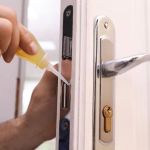 How to Maintain and Lubricate Locks for Longevity: Essential Tips for Homeowners
How to Maintain and Lubricate Locks for Longevity: Essential Tips for Homeowners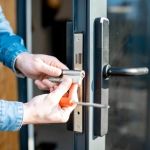 The Risks of Using Locksmith Services Without a Guarantee
The Risks of Using Locksmith Services Without a Guarantee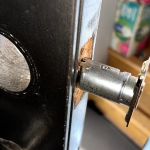 Importance of Installing a Smart Lock on Your Garage Door
Importance of Installing a Smart Lock on Your Garage Door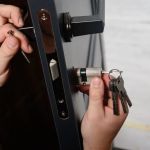 How to Find a Reliable Locksmith for Residential or Commercial Needs
How to Find a Reliable Locksmith for Residential or Commercial Needs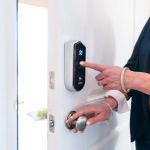 How to Protect Your Home From Lock Tampering and Forced Entry: Essential Tips for Security
How to Protect Your Home From Lock Tampering and Forced Entry: Essential Tips for Security How to Keep Your Home Safe While Renovating: Tips for Protecting Your Property
How to Keep Your Home Safe While Renovating: Tips for Protecting Your Property